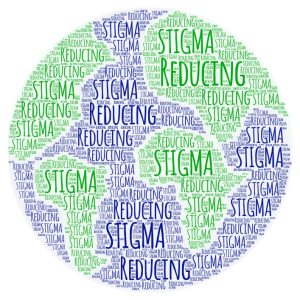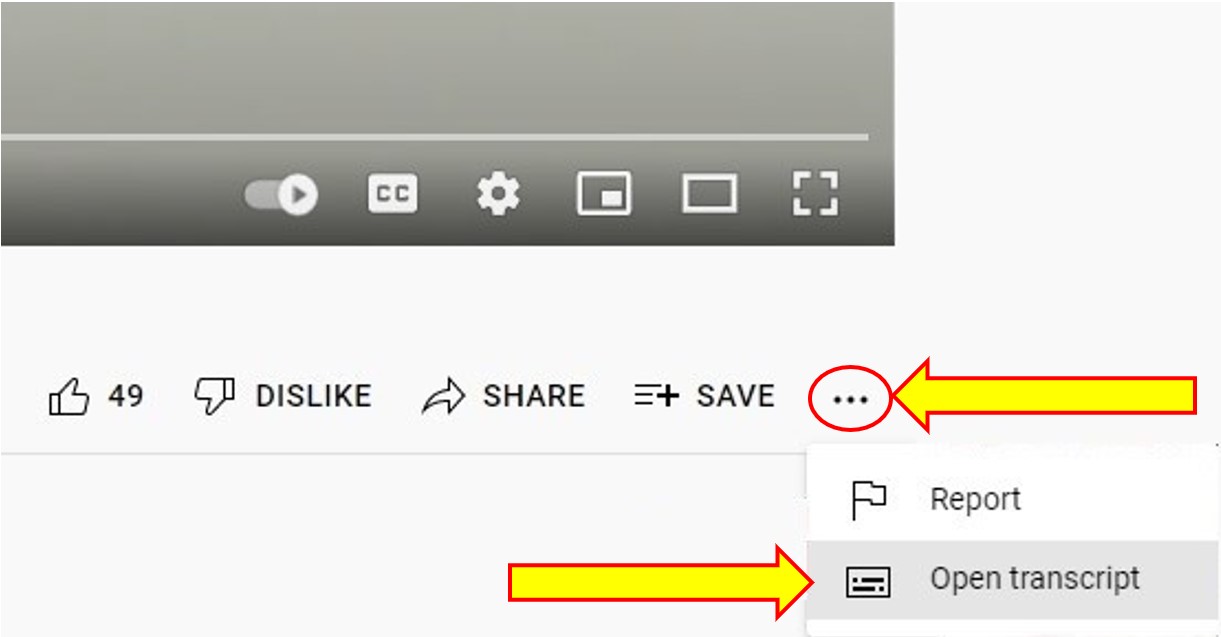1.4 Race, Stigma and Substance Use

Decolonizing Substance Use & Addiction / Len Pierre / TEDxSFU (looking at Substance Use & Addiction through an Indigenous lens, Len Pierre is Coast Salish from Katzie First Nation who is an Educator)
Transcript
To Access the Video Transcript:
1. Click on “YouTube” on the bottom-right of the video. This will take you directly to the YouTube video.
2. Click on the More Actions icon (represented by three horizontal dots)
3. Click on “Open Transcript”

Food For Thought
- Where does language come from?
- Reflect on specific language/terms you use.
- Are there terms you would change? Why?
- How do you think you can decolonize language?
Numerous studies have documented relationships between self-reports of discriminatory experiences and reports of distress, which can lead to substance use (6). While further research must be done to determine the causal relationship, the relationship exists. This means that if a person experiences racism they may use substances as a form of coping. Rather than using substances to cope, we can help promote healthier choices through access to healthcare that addresses the social determinants of health, including racism.
One example of an agency ensuring the intersectionality of health is addressed is the North End Community Health Centre in Halifax, NS.
One example of an agency ensuring the intersectionality of health is addressed is the North End Community Health Centre in Halifax, NS(7)
Transcript
To Access the Video Transcript:
1. Click on “YouTube” on the bottom-right of the video. This will take you directly to the YouTube video.
2. Click on the More Actions icon (represented by three horizontal dots)
3. Click on “Open Transcript”

One step we can take as Social workers is to actively talk about racism and how it exists in our lives. Addressing the language we use is an important part of addressing racism, reducing stigma, and supporting the health of minorities in Canada. For example, the intersectionality of black people’s lives in Canada includes “age, gender, sexual orientation, ability, religion, immigration status, country of origin, socioeconomic status, and racialized identity” (8). For Indigenous Canadians intersectionality also exists between colonialism, residential schools, and trauma. “While the experiences of First Nations, Métis and Inuit in Canada are unique, they have all endured and pushed back against hundreds of years of colonization, persecution and on-going structural violence that was intended to push them to the margins of society” (9).
The knowledge of these overlapping factors and identities are critical when providing service as this can reduce barriers and stigma. Service provision can be more comprehensive, for example, and programming must be culturally and trauma sensitive when working with people who have a racialized identity. Due to their identity, we can assume that they have experienced racism. Racism can lead to further stigma, which in turn creates barriers to treatment and support. This racism has led to perceptions of substance use among Indigenous communities.
Food For Thought
- Reflect on racism and stigma in healthcare
- What are three ways racism and stigma are creating a barrier for service in this article?
- What do you think you need to be aware of when providing services?
When you read stories like this and others, it may cause you to feel emotional. This emotional reaction may result in feeling uncomfortable or unsafe. It is important to understand where these feelings begin. As you explore your thoughts, feelings, and emotions, this is an opportunity to also explore your understanding of racism in Canada. This could lead to further education about slavery in Canada, or of residential schools. Perhaps you may wish to learn more about traditional or cultural ways of knowing; exploring the concept of two-eyed seeing, developed by Elder Marshall, Mi’kmaq Indigenous Leader from the Eskasoni First Nation who suggests making change as “one conversation at a time” (personal communication, February 9, 2021). You may reflect on your identity and begin to examine privilege, “an invisible package of unearned assets” (10).
READING:
Check out Peggy McIntosh’s Checklist.
As Social workers, it is your responsibility to understand systemic issues that create barriers to service so you may work with empathy, compassion, and knowledge. This will contribute to reducing racism and stigma.
Promoting the importance of traditional knowledge and traditional treatment is another step in the reduction of stigma. It is through the resilience of Indigenous communities that “Indigenous peoples, languages, cultures, and traditions have not only survived, but they have also been revived, reclaimed, and revitalized” (11).
Watch the video below and reflect on the importance of Indigenous culture, practices, and treatment in healthcare.
Royal College of Physicians and Surgeons of Canada. Bridging the gap between traditional and western medicine: The remarkable work of Dr. Karen Hill. Dr. Karen Hill is the inaugural recipient of the Royal College’s Dr. Thomas Dignan Indigenous Health Award, which celebrates Canadian doctors who epitomize a zeal and devotion to Indigenous rights and the dogged pursuit of justice for Canada’s Indigenous people.
Transcript
To Access the Video Transcript:
1. Click on “YouTube” on the bottom-right of the video. This will take you directly to the YouTube video.
2. Click on the More Actions icon (represented by three horizontal dots)
3. Click on “Open Transcript”

Attribution
Exploring Substance Use in Canada by Julie Crouse is licensed under a Creative Commons Attribution-NonCommercial-ShareAlike 4.0 International License, with minor revisions for clarity and ease of use.
References
- Government of Canada (2016). Census profile. https://www12.statcan.gc.ca/census-recensement/2016/dp-pd/prof/details/page.cfm?Lang=E&Geo1=PR&Code1=01&Geo2=PR&Code2=01&SearchText=Canada&SearchType=Begins&SearchPR=01&B1=Visible%20minority&TABID=1&type=1
- Lee, B., Kellett, P., Seghal, K., & Van den Berg, C. (2018). Breaking the silence of racism injuries: A community-driven study. International Journal of Migration, Health, and Social Care, 14(1), 1-14. http://dx.doi.org/10.1108/IJMHSC-01-2016-0003
- Cooper, A. (2006). The hanging of Angélique: The untold story of slavery in Canada and the burning of Old Montréal. University of Georgia Press.
- Government of Canada (2020). Social determinants and inequities in health for Black Canadians: A snapshot. https://www.canada.ca/en/public-health/services/health-promotion/population-health/what-determines-health/social-determinants-inequities-black-canadians-snapshot.html
- TEDx Talks. (2020, April, 8). TEDx San Francisco University-Len Pierre-Decolonizing Substance Use & Addiction. [Video]. Youtube. https://www.youtube.com/watch?v=j95ayhyadNE
- Gibbons, F. X., Etcheverry, P. E., Stock, M. L., Gerrard, M., Weng, C. Y., Kiviniemi, M., & O’Hara, R. E. (2010). Exploring the link between racial discrimination and substance use: what mediates? What buffers? Journal of Personality and Social Psychology, 99(5), 785–801. https://doi.org/10.1037/a0019880
- North End Community Health Centre. (2021). 50 Years of NECHC. [Video]. Youtube. https://www.youtube.com/watch time_continue=20&v=yN1GQ7_dkXo&feature=emb_logo
- Government of Canada (2020). Social determinants and inequities in health for Black Canadians: A snapshot (para. 6). https://www.canada.ca/en/public-health/services/health-promotion/population-health/what-determines-health/social-determinants-inequities-black-canadians-snapshot.html
- Interagency Coalition on AIDS & Development. (2019). Indigenous harm reduction, reducing the harms of colonialism, policy brief. https://www.canada.ca/en/public-health/services/health-promotion/population- health/what-determines-health/social-determinants-inequities-black-canadians-snapshot.html
- McIntosh, P. (1989). White privilege: Unpacking the invisible backpack. Peace and Freedom Magazine. https://psychology.umbc.edu/files/2016/10/White-Privilege_McIntosh-1989.pdf
- Interagency Coalition on AIDS & Development. (2019). Indigenous harm reduction, reducing the harms of colonialism, policy brief. https://www.canada.ca/en/public-health/services/health-promotion/population- health/what-determines-health/social-determinants-inequities-black-canadians-snapshot.html
- Royal College of Physicians and Surgeons of Canada. (2015, March 25). Bridging the gap between traditional and western medicine: The remarkable work of Dr. Karen Hill. [Video]. YouTube. https://youtu.be/nVQU1EmoWoU
- Winters, E., & Harris, N. (2019). The impact of Indigenous identity and treatment seeking intention on the stigmatization of substance use. International Journal of Mental Health & Addiction, 18, 1403–1415. https://doi.org/10.1007/s11469-019-00162-6

